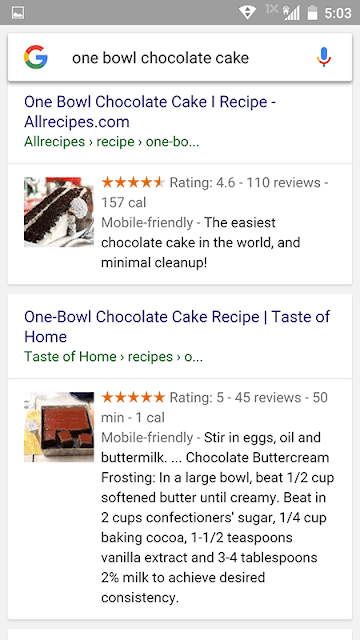SEO 101: What is Schema.org?
This week Google announced the addition of a new "schema," a form of HTML code, that will help news websites highlight "speakable content." As Google notes:
"The speakable schema.org property identifies sections within an article or webpage that are best suited for audio playback...Adding markup allows search engines and other applications to identify content to read aloud on Google assistant-enabled devices."
The announcement of this new schema, which is currently only available to "valid news sites," may seem relevant only to developers and SEOs. However, as Roger Montti notes in his analysis of the new markup for Search Engine Land:
"It’s important to understand how Google uses this new markup, how the algorithm chooses results to speak and how this markup may in the future apply to your business."
The key line here, for most of our readers of course, is how this markup "may in the future apply to your business." Yet, beyond the current implications for web developers and SEOs of news sites, the announcement also offers an opportunity to explore a few hot SEO concepts, which you should know about now.
What is Shema.org?
The new "speakable" code can be found on Schema.org, a joint project from from the major search engines, which aims to create a "shared vocabulary that webmasters can use to help search engines "understand the information on web pages and provide richer search results" (Source).
Schema.org is often referred to as "the future of SEO" for a simple reason: It offers a structured set of codes that, when used appropriately, enable the major search engines, including Google, Yahoo, and Bing, to offer a richer portrait of your content in search results.
This Google-led initiate is yet another example of how Google tries to partner with website owners and content producers.
Read: SEO 101: How to Partner with Google
The "schema" on Schema.org simplify the work of producing content for the search engines, which helps both the search engines and you.
"When you use structured data to mark up content," Google says, "you help Google better understand its context for display in Search, and you achieve better distribution of your content to users from Search."
What is Structured Data?
Structured Data refers "to any data that resides in a fixed field within a record or file" (Source). All the structured data supported by the major search engines can be found on Schema.org. The purpose of this universal"structured data" is to simplify the process of coding: "Structured data has the advantage of being easily entered, stored, queried and analyzed" (Source).
Schema.org offers different types of structured data; for each type, a webmaster uses a specific mark up to enhance search results. As Google notes:
"A variety of content types qualify to appear in rich results. CreativeWork is a schema.org type definition that applies to qualifying content produced for reading, viewing, listening or other consumption, such as news articles, recipes, and videos. Other content types, such as products and local business listings, belong to the commerce category, which is a custom category we use to describe schema.org types generally intended for retail purposes."
Right now, structured data is available to mark up eleven different types of content on Google's Structured Data Markup Helper, including:
What are Rich Snippets?
A "snippet" is the element of a search result the describes your page's content. A "rich snippet" is an enhanced result, which provides more details or context.
Rich snippets stand out from regular snippets, and may attract more clicks.
Some of the features of rich snippets, that are not included in regular search results, include increased styling and images, like added photos or reviews.
Take a look below at Google's examples of a "basic" search result:
Now look at and a "rich" search result, which includes a rating, a picture, and a recipe:
Read: SEO 101: Rich Snippets and Structured Data.
How Can You Take Advantage of Schema.org?
As Neil Patel notes in his post about Schema.org, "As simple as schema markup is to implement, it’s surprising how few businesses and websites have taken advantage of it."
Of course, this quote implies a two-fold opportunity: First, schema is easy to apply to your web pages; and second, many businesses and websites have failed to do so.
Naturally, then, applying these techniques to your own site can give you an obvious advantage today--and a lasting advantage in the future, when schema becomes all but necessary for most websites.
Schema.org Markups with Stepman's SEO
Stepman's SEO combines traditional marketing methods and organic SEO--with an emphasis on natural website optimization--to design thoughtful, inspiring, and effective social media marketing campaigns. Our SEOs understand how to use structured data to benefit your specific content type. For more information, call today: 215-900-9398.
"The speakable schema.org property identifies sections within an article or webpage that are best suited for audio playback...Adding markup allows search engines and other applications to identify content to read aloud on Google assistant-enabled devices."
The announcement of this new schema, which is currently only available to "valid news sites," may seem relevant only to developers and SEOs. However, as Roger Montti notes in his analysis of the new markup for Search Engine Land:
"It’s important to understand how Google uses this new markup, how the algorithm chooses results to speak and how this markup may in the future apply to your business."
The key line here, for most of our readers of course, is how this markup "may in the future apply to your business." Yet, beyond the current implications for web developers and SEOs of news sites, the announcement also offers an opportunity to explore a few hot SEO concepts, which you should know about now.
The new "speakable" code can be found on Schema.org, a joint project from from the major search engines, which aims to create a "shared vocabulary that webmasters can use to help search engines "understand the information on web pages and provide richer search results" (Source).
Schema.org is often referred to as "the future of SEO" for a simple reason: It offers a structured set of codes that, when used appropriately, enable the major search engines, including Google, Yahoo, and Bing, to offer a richer portrait of your content in search results.
This Google-led initiate is yet another example of how Google tries to partner with website owners and content producers.
Read: SEO 101: How to Partner with Google
The "schema" on Schema.org simplify the work of producing content for the search engines, which helps both the search engines and you.
"When you use structured data to mark up content," Google says, "you help Google better understand its context for display in Search, and you achieve better distribution of your content to users from Search."
What is Structured Data?
Structured Data refers "to any data that resides in a fixed field within a record or file" (Source). All the structured data supported by the major search engines can be found on Schema.org. The purpose of this universal"structured data" is to simplify the process of coding: "Structured data has the advantage of being easily entered, stored, queried and analyzed" (Source).
Schema.org offers different types of structured data; for each type, a webmaster uses a specific mark up to enhance search results. As Google notes:
"A variety of content types qualify to appear in rich results. CreativeWork is a schema.org type definition that applies to qualifying content produced for reading, viewing, listening or other consumption, such as news articles, recipes, and videos. Other content types, such as products and local business listings, belong to the commerce category, which is a custom category we use to describe schema.org types generally intended for retail purposes."
Right now, structured data is available to mark up eleven different types of content on Google's Structured Data Markup Helper, including:
- Articles
- Events
- Movies
- Software Applications
- Book Reviews
- Job Postings
- Products
- TV Episodes
- Datasets
- Local Businesses
- Restaurants
The operative word in Google's above quote is"rich." Creating a structured data markup for any of the above content categories will help your own web pages qualify to appear as "rich snippets."
A "snippet" is the element of a search result the describes your page's content. A "rich snippet" is an enhanced result, which provides more details or context.
Some of the features of rich snippets, that are not included in regular search results, include increased styling and images, like added photos or reviews.
Take a look below at Google's examples of a "basic" search result:
 |
| A basic search result with a "plain blue link" |
Now look at and a "rich" search result, which includes a rating, a picture, and a recipe:
 |
| A "rich" search result |
Read: SEO 101: Rich Snippets and Structured Data.
How Can You Take Advantage of Schema.org?
As Neil Patel notes in his post about Schema.org, "As simple as schema markup is to implement, it’s surprising how few businesses and websites have taken advantage of it."
Of course, this quote implies a two-fold opportunity: First, schema is easy to apply to your web pages; and second, many businesses and websites have failed to do so.
Naturally, then, applying these techniques to your own site can give you an obvious advantage today--and a lasting advantage in the future, when schema becomes all but necessary for most websites.
Schema.org Markups with Stepman's SEO
Stepman's SEO combines traditional marketing methods and organic SEO--with an emphasis on natural website optimization--to design thoughtful, inspiring, and effective social media marketing campaigns. Our SEOs understand how to use structured data to benefit your specific content type. For more information, call today: 215-900-9398.
SEO 101: What is Schema.org?
 Reviewed by penulis
on
08.38
Rating:
Reviewed by penulis
on
08.38
Rating:
 Reviewed by penulis
on
08.38
Rating:
Reviewed by penulis
on
08.38
Rating:

Post a Comment